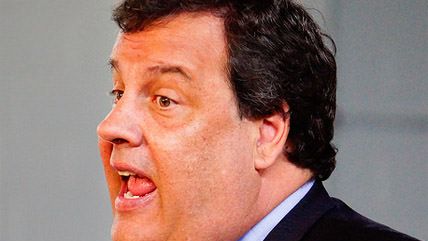Chris Christie Should Sell the George Washington Bridge
The best way to run something without political interference is to let someone other than the government run it.

It's going to take Governor Christie more than a confessional press conference and the firing of some aides to rescue his presidential hopes in 2016 and restore public confidence in his leadership following the scandal over the politically motivated closure of entry lanes to the George Washington Bridge.
The best thing the governor could do to turn this story around would be to sell the bridge outright—and dismantle the rest of the Port Authority of New York and New Jersey along with it.
What better way than a privatization to make the point Mr. Christie needs to make to his various constituencies at the moment—that he's both humble and a bold reformer? Humble, because he realizes the competitive private sector can do a better job of running a bridge or a tunnel or an airport or an office building than a government monopoly can. And a bold reformer, because he's willing and able to do what no governor has been able to do since the Port Authority was created in 1921 by governors Edward Edwards of New Jersey and Nathan Miller of New York (not exactly household names)—shut it down.
Whatever rationale there might have once been for the Port Authority as an example of regional government or professional public management has been rendered obsolete by the bridge-lane closures, which show the agency to be manipulated easily by political operatives. It's a government-created, tax-exempt monopoly.
In the private sector, if something doesn't work, customers can switch. If your ATT cellphone drops calls, you can switch to Verizon. If Amazon is out of the book you need, you can shop at BarnesandNoble.com. If REI doesn't have the hiking boots you need, you can go to L.L. Bean, or Eastern Mountain Sports. Or vice versa.
But for the trip from New Jersey to New York City, the Port Authority is the only game in town. It controls not only the George Washington Bridge, but also the Lincoln Tunnel, the Holland Tunnel, the Goethals Bridge, and the Outerbridge Crossing. It's also in the real estate business, controlling the World Trade Center site in Lower Manhattan, yet to be fully rebuilt more than a dozen years after the terrorist attacks of September 11. And it's in the airport business, operating Kennedy, La Guardia, and Newark airports.
Leasing or, even better, selling the bridges, tunnels, airports, bus terminals and office space to private operators would introduce competition and reduce politicization. It would get these operations out of the subsidized tax-exempt public sector and into the tax-paying private sector.
If market forces mean that tolls or fees increase on newly privatized bridges and tunnels, then that may increase incentives to carpool, take a bus or a train, or skip the trip altogether and replace it with a phone call or a videoconference. It is also possible that if the bridges and tunnels are sold to different operators, they will compete with different pricing strategies rather than Port Authority-style lockstep increases. Some of the new operators may choose to experiment with offering higher-speed lanes to higher-paying customers, or discounts to drivers who are willing to travel at less-congested hours. They may even use innovative technology, like Google's self-driving cars or the E-ZPass express lanes, to move more cars through in less time.
Governor Pataki of New York made moves in this general direction, inspired by the New York State Research Council on Privatization led by businessman and Reagan administration official Ronald Lauder. Governor Cuomo has shown with his resistance to Mayor de Blasio's proposed tax increases that he wants to establish his bona fides as a moderate, or at least a non-doctrinaire liberal, so he might be persuaded to go along. Democrats in New York have long called for reining in these quasi-independent authorities.
And privatization of public transportation assets has been successfully achieved elsewhere, from Margaret Thatcher's privatization of Heathrow Airport in Britain to Indiana Governor Mitch Daniels' 75-year lease of the Indiana Toll Road.
The best way to run something without political interference is to let someone other than the government run it. If Mr. Christie can move from defense to offense on this one, it will be evidence that his political career is worth salvaging. And even if he doesn't turn it into a presidential nomination, the private sector may yet find a way to reduce the traffic in ways that eventually more than make up for the jams that Christie aides created.


Show Comments (97)